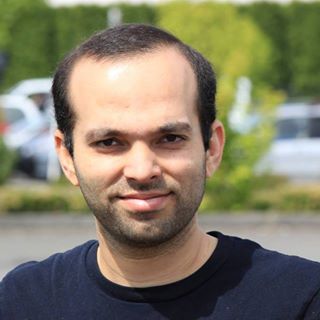Man's Search For Meaning
During the Holocaust in the 1940s, Viktor Frankl spent 3 years as a prisoner at the Nazi Concentration Camps. Viktor lost his wife, father, mother and brother in these camps. The conditions in these camps were brutal - he was tortured as a prisoner and slave under harsh living conditions - extreme hunger and cold. Unlike most of the prisoners who chose to end their lives in these camps, Viktor found a meaning to his life. This blog post is about 3 learnings from this book on life, freedom and suffering.
Life
The first learning is about life. Everytime I’ve asked myself or others the question - What is the meaning/purpose/goal of life?, I was never satisfied with the answers. The common answers to this question is usually happiness, success, love or money. The problem with all of them is that they cannot be pursued. The more we try to aim at any of them (happiness, success, love and money) or make it a target, the more we’re going to miss it. It is like sleep, the harder you try, the more you’ll stay awake.
We needed to stop asking about the meaning of life, and instead to think of ourselves as those who were being questioned by life — daily and hourly. When life presents us with problems, it asks the question “What is the meaning of this?”. Our goal is to answer it - not in talk and meditation, but in right action and in right conduct. Life ultimately means taking the responsibility to find the right answer to its problems and to fulfill the tasks which it constantly sets for each individual.
To live is to suffer, to survive is to find meaning in the suffering.
Freedom
The second learning is about freedom. The conditions in the concentration camps were brutal - they prisoners were fed with very little food - 6 ounce of bread was what most people had in a week! The weather was really cold and they didn’t have enough place to squat on the bare ground, let alone to lie down. To make it worse, the inmates were constantly pitted against one another leading to a survival of the fittest type of living condition.
Even under these conditions, there were men who walked through the huts comforting others and giving away their last piece of bread. They may have been few in number, but they offer sufficient proof that everything can be taken from a man but one thing: freedom — to choose one’s attitude in any given set of circumstances, to choose one’s own way.
Freedom is the ability to choose one’s attitude under any given set of circumstances.
Suffering
The final learning is about suffering. In the concentration camps, one of the inmates had a strange dream. He came to Viktor (a trained psychiatrist) and said - “Doctor, I had a strange dream last night. A voice told me that if I wanted to know anything, I should ask and it would answer my question. I asked, when I would be free from the concentration camps and it said I would be free on March 30th”.
It was the first week of March then. As the date got closer to March 30th, it became evident that he wouldn’t be freed from the concentration camp. On March 29th, he suddenly became ill and ran a high temperature. On March 30th, the day his prophecy had told him that the war and suffering would be over for him, he became delirious and lost consciousness. On March 31st, he was dead.
There is a close connection between the state of mind of a man, his courage and hope, and the state of immunity of his body. As he had lost the will to live, his immunity in the body had dropped. This also explained why the death rate between Christmas and New Year is a lot higher - owing to the naive hope that people had that they would be free and back home by Christmas.
This again circles back to finding a meaning to our suffering and life. For some of us it could be our loved ones while for some of us, it could be our work.
He who has a why to live for can bear with almost any how.
Kaushik Rangadurai
Code. Learn. Explore
